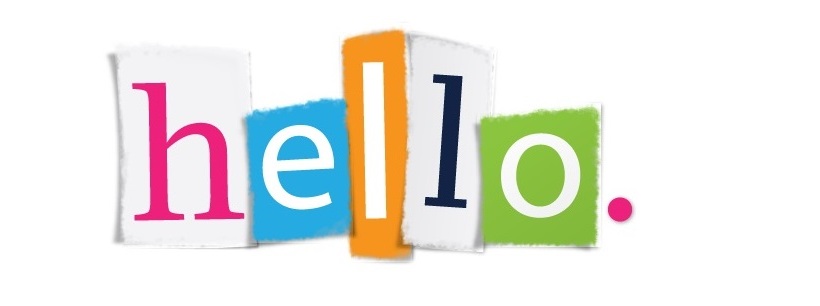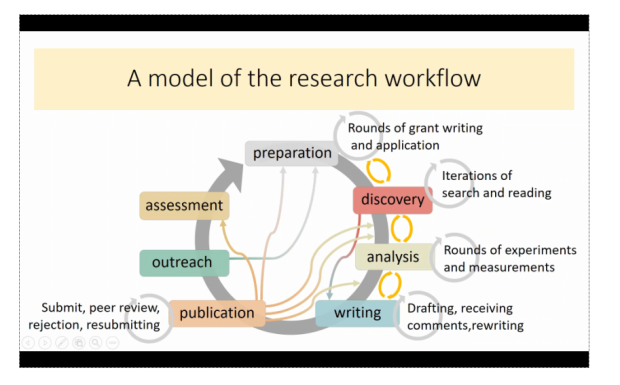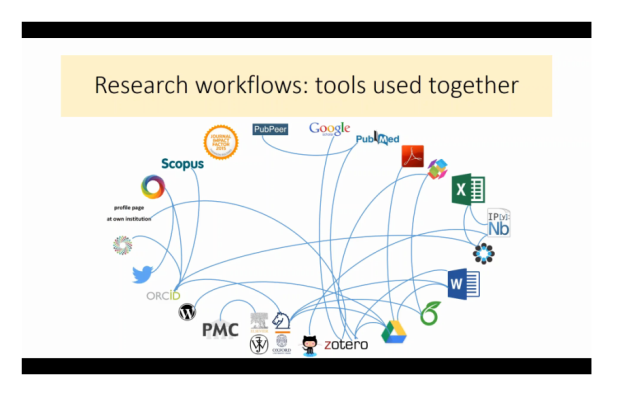I’m reflecting on the CILIP Conference 2018 I went to last week and looking back over tweets to fill in gaps in the notes I took. I’ve decided to pull together an overview of some of my favourite sessions in the form of a series of tweets from everyone there – with a few comments of my own. I hope this will extend the reach of these sessions beyond those able to attend the conference.
I was really looking forward to the first keynote from Penny Young, the House of Commons Librarian. Before the conference I knew the House of Commons had a library, but knew very little about it. I wasn’t disappointed – Penny’s talk was fascinating.
@PennyYoungHoC now! I have been looking forward to this keynote since I first saw the conference programme #CILIPConf18
— Hannah Smith (@haninthelibrary) July 4, 2018
What is the House of Commons Library?
Now at #CILIPconf18 the fantastic @PennyYoungHoC celebrates 200 years of @commonslibrary at the heart of our democracy thanks to the “enduring skills of our profession” @CILIPinfo
— Nicholas Poole (@NickPoole1) July 4, 2018
The House of Commons Library is 200 years old this year! Like NHS Libraries with healthcare staff, the Library’s role is to ensure that MPs have access to the right information #cilipconf18
— Holly Case Wyatt (@Hollingtonn) July 4, 2018
The House of Commons Library is 200 years old this year. The librarians’ key role is to ensure MPs have the impartial information they need on an incredible variety of topics. Sounds fascinating. #CILIPConf18
— Emma (@universallyemma) July 4, 2018
Just like librarians across a whole range of sectors. Providing / facilitating access to impartial information is one of our key skills.
.@PennyYoungHoC – 15th person and 3rd woman to hold the role of House of Commons Librarian. Has had an action packed 3 years at House of Commons Library – 1 Referendum, 2 Elections, and all of the accompanying work for Brexit legislation work. #CILIPConf18
— Jaimee McRoberts (@JaimeeUK) July 4, 2018
relationships are essential to the working of the House of Commons library – we need to remember that those networking skills are vital to services #cilipconf18
— Sam Burgess (@samanthaclare) July 4, 2018
“Although we face new threats, I am very positive about the role of #information in our society” @PennyYoungHoC @commonslibrary at #CILIPconf18 #trustedprofessionals pic.twitter.com/JyrKvuVY4Q
— Nicholas Poole (@NickPoole1) July 4, 2018
HOC Library is part of an information ecosystem within parliament – HOL, Office of Science and Technology, Select Committee researchers, MP links to think tanks and parliamentary archives #CILIPConf18
— Claire Sewell (@ces43) July 4, 2018
A bit of history
#CILIPConf18 The First commons Librarian was appointed 200 years ago. He created the first library catalogue and commissioned the first library space.
— CILIP PMLG (@CILIPPMLG) July 4, 2018
1834 fire gutted the HoC library – some books saved by chucking them out of the window! #CILIPConf18
— Beth (@thants) July 4, 2018
During a historical fire many documents were lost but it did give an opportunity to redesign the library and make it a working space for MPS as well as somewhere to house the collection #CILIPConf18
— Claire Sewell (@ces43) July 4, 2018
“The library has grown out of fire, bombings and… having too much stuff” – @PennyYoungHoC on the history of @commonslibrary #CILIPconf18
— Hannah Hickman (@hd_hickman) July 4, 2018
That common theme bringing together libraries across time, sectors and geography – growing out of having too much stuff!
Nice bit of #libraryhistory from Penny Young. 19th c librarians had their own suite of rooms! #cilipconf18 pic.twitter.com/bLCYsgd3DR
— Dr Danielle Westerhof (@behindthespines) July 4, 2018
In it’s 200th anniversary year the HOC Library is staging a series of events and exhibitions to highlight its role in parliament #CILIPConf18
— Claire Sewell (@ces43) July 4, 2018
More info about Library 200: https://commonslibrary.parliament.uk/library-200/
Supporting MPs & advocacy
Research project asked and observed how MPs used information – used to score political points but also to inform, change minds, hold govt to account. @commonslibrary must be impartial to be trusted #CILIPconf18
— Hannah Hickman (@hd_hickman) July 4, 2018
Note to self: this sounds like some really interesting research that would be useful to follow up if/when I ever get around to that piece of research I want to do on information use with my service users.
The House of Commons library has a strong brand – is trusted and impartial. #cilipconf18
— Sam Burgess (@samanthaclare) July 4, 2018
MPs are often seen as “social workers of last resort” by constituents these days and the library does a lot of work supporting them in this role. #CILIPConf18
— Emma (@universallyemma) July 4, 2018
#CILIPConf18 “We should be heartened by how much good use of information there is” by MPs visiting the House of Commons Library
— CILIP PMLG (@CILIPPMLG) July 4, 2018
Penny Young, Hoc Librarian – Parliament & GCHQ value their libraries. Surely everyone deserves a library service they can rely on! #CILIPConf18
— Rachel Bramley (@rachelabramley) July 4, 2018
Great advocacy for the role of House of Commons Library staff from both MPs and Journalists. @PennyYoungHoC @CILIPConf18 #CILIPconf18. pic.twitter.com/5GgDCTVvD3
— Louise Goswami (@GoswamiLouise) July 4, 2018
Enquiries and briefings
The staff of @commonslibrary handle 30,000 enquiries from MPs and publish around 900 briefings each year! #CILIPconf18— Hannah Smith (@haninthelibrary) July 4, 2018
HOC library publishes briefing papers which are available both internally and to the public – these are factual, impartial briefings on a range of topics #CILIPConf18— Claire Sewell (@ces43) July 4, 2018
I believe it’s 180 – an amazing research & analytical team of #librarians and #infopros right at the heart of Parliament. I’ve had MPs tell me they don’t decide what to vote until they’ve read the @commonslibrary briefing! #CILIPconf18— Nicholas Poole (@NickPoole1) July 4, 2018
Keynote @PennyYoungHoC – promoting the @commonslibrary briefings which we LOVE at work. They’re so accessible and clear. #CilipConf18— Jo Wood (@JoWood04) July 4, 2018
Browse briefings: https://commonslibrary.parliament.uk/category/briefing-paper/
Sign up to receive email alerts when new research published on your topic(s) of interest: https://commonslibrary.parliament.uk/subscribe/
MPs need evidence based information to do their job well and so important role of information specialists says Penny Young @CILIPConf18— Preeti Puligari (@PuligariPreeti) July 4, 2018
Where previously the House of Commons library would write for paper versions of briefings, they are now concentrating on writing for web and other media – takes a different approach. #cilipconf18
— Sam Burgess (@samanthaclare) July 4, 2018
#CILIPConf18 House of Commons Library using social media and pithy headline articles to enable greater access to their information
— CILIP PMLG (@CILIPPMLG) July 4, 2018
@PennyYoungHoC echoing @LibnOfCongress call to put accessibility at the heart of everything we do. #CILIPConf18
— Beth (@thants) July 4, 2018
Data
HOC is skilling up people already working in the library e.g. data science skills to build new tools #CILIPConf18
— Claire Sewell (@ces43) July 4, 2018
Data management is incredibly important in the HOC but is becoming more so as it moves forward #CILIPConf18— Claire Sewell (@ces43) July 4, 2018
#CILIPConf18 Penny Young talking about how HoC are moving to a more accessible web publishing model and curating dashboards of constituency level data for MPs— Sophie Rollason (@S_Rollason) July 4, 2018
Data! https://t.co/ep3YD7aKsH #CILIPConf18— Claire Back (@calire) July 4, 2018
Dashboards!! @Hollingtonn @KalDhanda @cmmclaren @HHSUofBLib @HeatherBake #cilipconf18 pic.twitter.com/41jkNvYSkd
— Sam Burgess (@samanthaclare) July 4, 2018
What’s next?
Lots in store for @commonslibrary as the palace desperately needs renovating. Opportunity to develop and improve the library service #CILIPConf18
— Beth (@thants) July 4, 2018
Final challenge for the HOC Library = restoration and renewal. Basically the mother of all referbs! #CILIPConf18
— Claire Sewell (@ces43) July 4, 2018
Penmy Young @HouseofCommons library speaking at #CILIPConf18. Great to hear that openness and accessibility is core to her view of her library and also how the upcoming building work is being seen as an opportunity to reimagine the library service.
— Victoria Bird (@geeksinheritall) July 4, 2018
What can we do?
We only have a thriving parliamentary democracy if the public feel that they can get engaged by arming themselves with information. By equipping them with information skills, we are all part of this endeavour. #CILIPConf18
— Hannah Smith (@haninthelibrary) July 4, 2018
Our customers can influence the @commonslibrary customers #CILIPConf18
— Beth (@thants) July 4, 2018
How can librarians help their users to help parliament?:
Library briefings = good source of info
Visit the Palace of Westminster
How can your customers influence their customers (MPs)?#CILIPConf18— Claire Sewell (@ces43) July 4, 2018
see https://t.co/LqjDwACOO4 encourage your academics to submit evidence to select committees and visit Parliament #cilipconf18
— Caroline (@CarolineCooke) July 4, 2018
We can all play a role in supporting the public engagement of the @commonslibrary – we can run events, encourage people to put together evidence for committees, etc. #cilipconf18
— Sam Burgess (@samanthaclare) July 4, 2018
.@PennyYoungHoC suggests ways to help our communities be more informed citizens: share the briefings, encourage academics to provide evidence to select committees, use HoC toolkits for events in public spaces, use school outreach opportunities #CILIPconf18
— Hannah Hickman (@hd_hickman) July 4, 2018
#CILIPConf18 Penny Ypung: “We only have thriving public engagement if people are equipped with the right information” – @commonslibrary offers toolkits & exhibitions for #Libraries to do this #trustedprofessionals pic.twitter.com/sr1o5yLA5c
— CILIP PMLG (@CILIPPMLG) July 4, 2018
Fascinating first keynote of #CILIPConf18 about the work at the House of Commons Library and it’s challenges. I particularly like the ideas for how other sectors can help and get involved
— Catherine Hoodless (@CathHoodless) July 4, 2018
An impressive role model
#CILIPConf18 Penny Young is an impressive role model for library and information professionals. she has given us an assured, astute and articulate presentation on an important resource which underpins our democracy.
— Alison Wheeler MBE (@alisonwheela) July 4, 2018
Definitely a role model and source of inspiration #cilipconf18 https://t.co/Qlx9dQ433E
— Lizzie Sparrow (@library_lizzie) July 4, 2018
As well as learning a lot about the House of Commons Library, Penny left me feeling inspired and optimistic about our profession. And the House of Commons Library has definitely been added to my list of “Libraries I want to visit”.
Huge thanks to Penny Young and everyone whose tweets made this post possible.


